Why are chemicals in our life so common now? Just because it tastes and smells like a strawberry does not mean that it actually is a strawberry.
We’ve all heard the phrase: “all things in moderation.” But, there are a handful of things where even moderation isn’t good enough. The best choice is to stay away from foods filled with chemicals!
Yes, you can buy them at the supermarket. These products are classified as safe, but to me they are not safe at all!
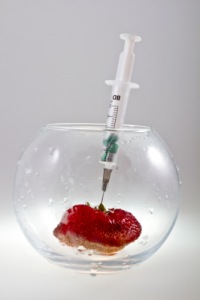
1. Strawberry flavoring does not have any strawberries in it!
Just because it tastes and smells like a strawberry does not mean that it is. Not only does strawberry flavoring not involve fresh strawberries, it doesn’t have anything natural in it.
The strawberry flavoring you get in fast food milkshakes is a concoction of 50 separate chemicals and none of them have berry in the name.
Here are just the first 10 ingredients!
1. Amyl acetate
2. Amyl butyrate
3. Amyl valerate
4. Anethol
5. Anisyl formate
6. Benzyl acetate
7. Benzyl isobutyrate,
8. Butyric acid
9. Cinnamyl isobutyrate
10. Cinnamyl valerate
You get the idea! Does this list sound even remotely like strawberry to you? No thank you to strawberry flavouring for me.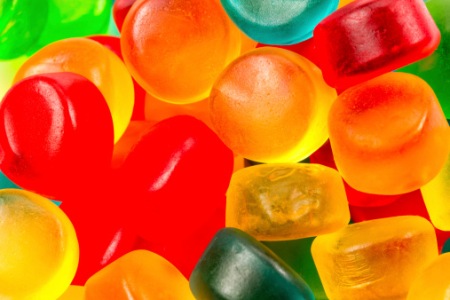
2. Food dyes were created to make our food look prettier and healthier.
For years, there has been an effort (without success) to get the Food and Drug Administration to ban food dyes. Blue dyes are linked to cancer in animal tests, red dyes cause thyroid tumours in rats, green dyes are linked to bladder cancer and yellow dyes are linked to tumours of the kidneys and adrenal glands.
All these colours are used in most processed, and packaged foods. The most worrying place to find them is in children’s “treats.” Take the Tropicana Twister Cherry Berry Blast, for example. This drink contains no berry or cherry juice, but has lots of the artificial dye, Red 40 just another chemical.
Michael F. Jacobson, PhD, executive director of the Center for Science in the Public Interest says: “Companies use food dyes to make foods appear healthier than they are and to replace truly healthy ingredients.” One more reason not to eat junk food.
Tell the U.S. Congress to ban artificial food dyes by signing this petition.
]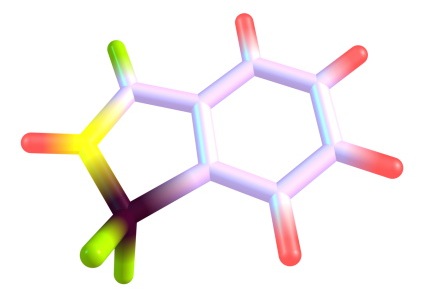
3. Artificial sweeteners were invented to help people lose weight because they have zero calories, but they don’t work.
Artificial sweeteners make your body less able to regulate energy. This explains why you are STILL gaining weight even though you’re exercising so much and eating so little.
Artificial sweeteners have been found in treated wastewater, posing unknown risks to fish and other marine life. Rodale says, “They’re unnatural, nonorganic, taste horrible and lead to all sorts of bad health consequences, false expectations and short-term strategic thinking.”
If you are sensitive, you may notice they leave an awful taste in your mouth. Why would you want to put harmful chemicals into your food? Learn more about common artificial sweeteners and their dangers.
There are much safer and healthier ways to reduce sugar intake and lose weight.
]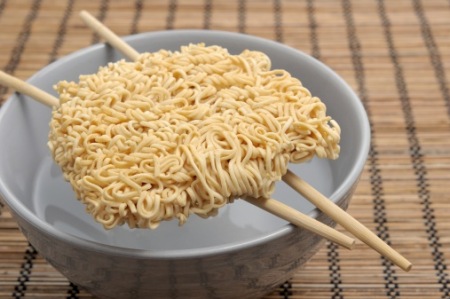
4. Monosodium Glutamate (MSG)
Monosodium Glutamate is highlighted in Slow Poisoning of America by John & Michelle Erb.
It occurs naturally in foods like broccoli, mushrooms, some protein-rich foods (walnuts, meat and cheese) and seaweed. Nature did not intend for us to extract it and add so much processed MSG to our diets in high quantity to increase flavour.
MSG has been linked to obesity, and for good reason: it can be addictive!
MSG found its way into our foods in the west in the ’50s and ’60s. It has been added in larger and larger quantities to our packaged foods, snacks and fast food we eat daily. Corporations that sell processed food love MSG because it is cheap and makes food taste great. MSG hides behind 25 or more names, such as “Natural Flavoring.”
Dr. Russell Blaylock, noted neurosurgeon, author and foremost authority on excitotoxins such as MSG says “MSG is an excitotoxin that causes brain damage.” If I was not allergic to MSG, not wanting brain damage would be a good reason not to consume it. At least 30 percent of the population suffers from some form of reaction to MSG.
(There are many studies arguing we may not really know whether MSG is good or bad. However, the findings for this ultimately unnecessary ingredient’s negative impacts are also strong. It’s up to us to decide whether processed food is worth the risk!)
Air fresheners contain known carcinogens, suspected carcinogens and neurotoxins.
BONUS #5. Air Fresheners are very unhealthy for your body and the environment.
Air fresheners are made with formaldehyde (a known carcinogen), naphthalene (a suspected carcinogen), toluene (known to cause liver and kidney damage) and xylene (a neurotoxin). They are a major source of indoor air pollution.
What’s more disturbing is how synthetic air fresheners work: “Many mask an undesirable scent, but some use a nerve-deadening chemical that interferes with our sense of smell. Others coat your nasal passage with an oily film. Many air fresheners can trigger asthma attacks and affect our central nervous system.” says David Suzuki.
A study entitled, Clearing the Air: Hidden Hazards of Air Fresheners, found 86 percent of air fresheners tested contained dangerous phthalates. Exposure to phthalates can increase your risk of endocrine, reproductive, and developmental problems.
Some brands that tested positive for phthalates didn’t even include phthalates in their list of ingredients and some brands labelled as being all-natural and unscented had phthalates in them.
This is my list of the top 5 products that should have never been invented mostly because I am not a fan of consuming chemicals.
Check out my videos and podcasts to hear information like this in a different format!
What products do YOU think should have never been invented?]

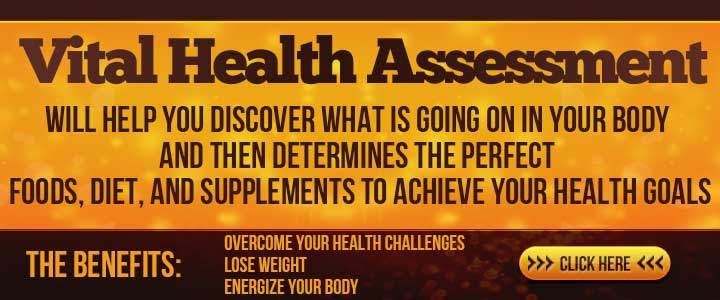
There’s certainly a lot to learn about this subject. I love all the points you’ve made.